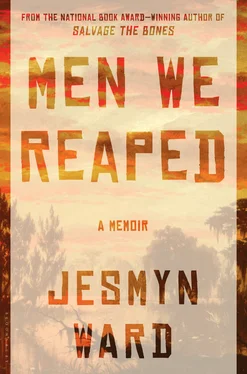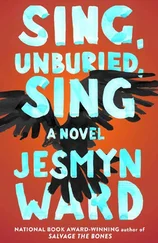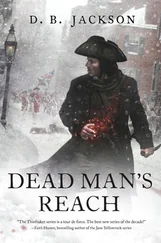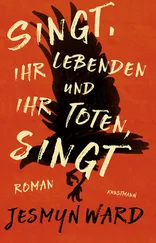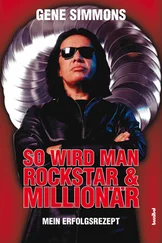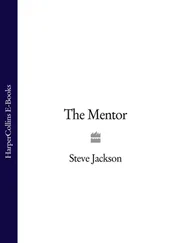We were at McCloud State Park once, the only group of Black people there among a crowd of Whites. My aunt had arranged the trip to the park, and we sat in our own little segregated crowd in the shallows, me and Nerissa and Charine and Joshua, our cousins Rufus and Dornell, and a few other boys from the neighborhood, Duck and Hilton and Oscar and C. J., and we drank beer, tossing the brown and gold bottles back toward the shore, where we would collect them in a garbage bag. The day was hot, the beach small, Black and White studiously ignoring each other. There were high, fluffy clouds in the sky, and we swam in the amber-dark river, sat on the red clay dirt shore and brushed sand from our shoulders. When a white boat chugged up the river, flat and topless, with a gathering of men and one woman, all White and mottled red from the sun, feathered hair bleached in the light, the other White people on the bank cheered. A Confederate flag flew from a staff at the prow, and one of the men on the bank with us lifted his arms above his head, crossing them at mid-elbow so that they made an X, and howled. He’s making the bars , I thought, and suddenly I wanted to leave these White people to their beach, their stars and bars, their glances, the howl that said what so many of the White politicians in Mississippi have said in coded language, one time or another: You’re nothing .
Josh was standing near the front of his parked Cutlass, which was blue and dull in the heavy light. His girlfriend Tasha stood before him, small and pale. There hadn’t been enough sun that day to tan. His hair snaked over his head and down his forehead, sandy and alive. He tossed his head back so that he could see us all clearly.
“I don’t know what y’all looking so surprised for,” he said. He addressed us all, but he looked at me when he said it. “White people got gangs just like us.”
Joshua made sense of the world in his own way. Or at least he was trying to for the short time that he was here. He was attempting to see the patterns, to find the story behind the statistics that I would write about years later. He wanted meaning. There was an older Black man who set up shop with a card table and a folding chair outside the doors of the local supermarket in Pass Christian, a supermarket that would disappear after Hurricane Katrina, its steel beams bent to look like twisted, spindly trees. The man fashioned crosses from plastic and string, wove intricate designs into the crucifixes, and sold them. Sometimes at night, on one of his rides, Josh would stop and sit with the man, talk to him, ask him questions: What do you know about God? Why are we here? And the man, who had maybe sold one cross earlier in the night for a few dollars, happier at the fact it was bought than by the money it gave him, was pleased at having this tall young olive-skinned man sitting there with him asking him questions instead of swaggering by, pants low on his hips, wife-beater not quite meeting his shorts at the waist, flashing underwear, smelling of smoke and deodorant and salt; this older gentleman would have smiled and said—
I do not know what answers this Black man gave my brother, nor if they made sense to Joshua. Perhaps Josh thought about the churchman’s answers when he stood at the edge of a crowd, his brindle pit bull on a tight leash, and watched the rest of us talking and laughing with each other in clusters in the street after the Easter Sunday ballgame. Perhaps he thought about the churchman’s answers one winter night when we were at Hilton’s house: Joshua, Duck, Nerissa, C. J., Rob, Aldon, Charine, Hilton, Dornell, Pot, Deandre, Tasha, and I. I was sitting in a chair at a table in the kitchen and holding a can of beer in my hand. A case of Budweiser sat before me, and we were all drinking. Hilton’s mother was absent; she didn’t care what we did, and she let us have the run of the house. She was somewhere out in that chilly night, a night so cold it seeped through the floorboards. I was so drunk that I could not sit upright in my chair. I slid down so that the back of the chair was at my neck and my head rested on it. I felt better that way. My brother walked in from the living room and stood before me with his beer. He was more sober than I, and often serious, drunk or sober.
“What are you doing?” he asked. I gulped down my beer.
I felt good, which didn’t happen often; I was often unhappy, depressed and homesick. After my brother and my friends died, I would learn I’d known less of unhappiness than I thought. On that cold night, I was proud of myself because I was home for Christmas break and I was keeping up with my brother. I was happy we were hanging out. I was drinking as much as he was, and I was only five foot three and 110 pounds while he was six foot one and around 190 pounds, and I was not sick yet. I wanted him to know what I thought of him, that I loved him and admired him, that I wanted to grow up and be like him, so I opened my mouth and raised my can to him and said, “I’m rolling with the big dogs. I’m rolling with the big dogs!” in tribute. I was too drunk for eloquence. I was his sister. He looked at me, his eyes soft. I wonder if he thought about the fact he’d have to carry me to his car and slide me into the backseat, about the moment, which neither of us remembered, when he’d become the big brother, the protector, the one who walked through the door first, and I’d become his little sister.
“She’s crazy,” Tasha said.
“She’s drunk,” Joshua laughed.
Joshua would have thought about his questions, the answers the world had given him about his place in it, every time he walked into the room I shared with Nerissa while I was home from college for a few days, a week, a month, and during those six months I lived at home before he died. On those nights, he said: “Come take a ride with me.”
I was a bitch to him often during the summer, snapping at him and fighting with him over small things, like him not wanting to watch our nephew De’Sean while I was on babysitting duty, or him heating up buckets of chitterlings in the microwave so the stink pervaded the house, but I never told Josh no when he asked me to ride. We argued and forgot we argued. Each time he invited me to come along with him, I felt special that he’d asked, pleased that he wanted to spend time with me. After he died, I wonder if he’d known it. The last time we rode is the one I remember most clearly: he wore jean shorts and a wifebeater, and his hair was uncombed. I followed him out of the front door. It was night, and the air was wet and warm, and when we got into the car, the seats felt damp. When Josh cranked the car, it scratched and rumbled to life, and we both rolled down the windows, manually; the knobs were slick. Immediately his radio sounded. He played songs on the stereo for me that beat obscenely because his speakers were so loud. Years later, I can only remember one of the songs, and it was the last: Ghostface Killah’s “All I Got Is You.”
“I got something I want to play for you,” Joshua said.
He turned up the music, blasted it. This is for all the families, Ghostface said. This is for yours, I heard. The trunk rattled. Thinking about the past, when he was young, Ghostface said. The bats spastically caught their dinners. They were poor, Ghostface said. Armadillos crept along ditches and froze in the headlights. His father left him at the age of six, and after his mother packed his father’s shit and kicked him out, she cried, Ghostface said. The pines waved to the dark. The trees fell away like great waves. Sometimes I look up at the stars and analyze the sky, and ask myself was I meant to be here … why? Ghostface spat, like he could not wait to get it out of him, could not bear keeping it inside any longer.
“This reminds me of us,” Josh said.
Читать дальше
